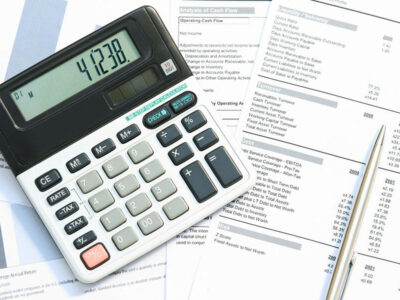
A bookkeeper’s work is applicable across many different types of industries — after all, every business needs to track and optimize its finances. However, to help market your business and small business bookkeeping set it apart amongst the competition, you may decide to specialize in a specific industry. One big hurdle in starting a small business is learning to adjust to unanticipated challenges.

This book breaks up bookkeeping into 20 digestible chapters, from definitions to analysis and interpretation. Plus, there are FAQs at the beginning of the book to clarify some common issues. That’s why Bookkeeping for Small Business by Andy Lymer and Nick Rowbottom is a great pick. Depending on which software solution you choose (see step 3), you’ll do this manually, or you’ll automate it.
Assign Transactions to Specific Accounts
Tracking your expenses is an essential part of managing your finances. By keeping track of every dollar you spend, you can gain insight into where your money is going and make informed decisions about allocating your resources. Generally, if your assets are greater than your liabilities, your business is financially stable. Note that certain companies, such as those in service-based industries, may not have a lot of equity or may have negative equity. Your reports will look different depending on which you decide to use. We believe everyone should be able to make financial decisions with confidence.
But complex projects like reconciling your accounts and closing the books should be done by a professional. Schedule your bookkeeping tasks and activities into smaller tasks and complete them over the course of the week. Set a date early enough each month to give you time to prepare the paperwork. Use tools to help you set a budget and manage your assets to better oversee your operational costs.
Bookkeeping for small businesses: Five easy steps
Too little and you aren’t fairly compensated for your work; too much and you’ll have a tough time competing with other bookkeeping businesses. As you grow your client roster, you’ll want to make sure you’re tracking them effectively and completely. You can use a CRM and project management tool in which you can set up your own workflow.
- You can keep books for a small business by being organised and methodical.
- As payments start coming in and expenditures begin adding up, you’ll see you need to do more than just record them—you’ll have to sort them into their own categories.
- For example, your new tool may suggest pairing certain receipts to various expenses, but you must still approve those regularly.
- Tracking purchasers who have paid against those who haven’t illustrate your company’s accounts receivable turnover ratio.
- When it comes to bookkeeping, your experience as a small business will differ from larger corporations.
- Delays to money entering the business can impact how flexible you can be, and even prevent you from making basic purchases.
- Even if you aren’t planning on growing any time soon, you need to have a sense of how much money is coming in versus what is going out.
A good accountant should be viewed as an investment to the business, not a cost. Any good accountant should save you more money than they cost even if that just equates to the time, they save you from doing things yourself. If you run your own limited company, you need to follow different rules. You must report any item you make personal use of as a company benefit. In this guide, we’ll cover the basic essentials of bookkeeping for small businesses, including what bookkeeping is, its benefits, and how to get started. If the IRS finds that you don’t have all receipts necessary for your business (from $75 and more), you can get penalized.
Bookkeeping and accounting software
Single-entry bookkeeping is simpler, and is usually used by businesses with few or no employees, minimal plans to scale, and no need for in-depth financial reporting. Before you start bookkeeping, you need to determine the right bookkeeping method and corresponding accounting method for your business. Business accounting and reporting standards vary slightly from province to province, so it’s important that you find a bookkeeper that’s based in the same region where you’re operating your business. If your business incorporates brick-and-mortar sales with online sales, payroll will be different between the two. To analyze which type of sales amount to the largest profit for your company, you must segregate in-person sales from online sales. Whichever accounting method you choose, the best way to make sure you’re dotting your i’s and crossing your t’s is to maintain order in the way you manage your bookkeeping.

